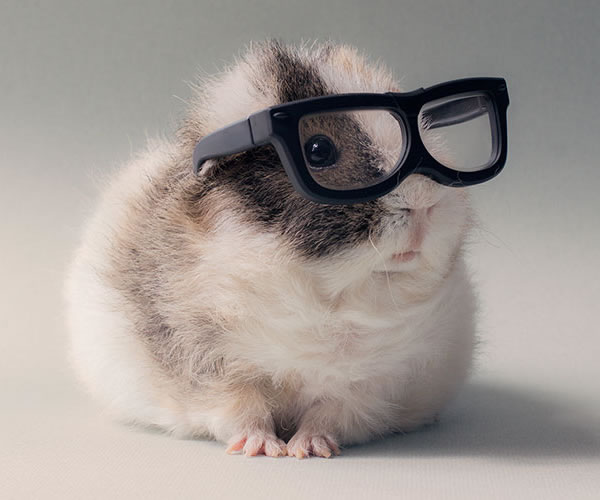Reflections from a UX guinea pig: my internship at Redgate
 Redgate have been running a hugely successful intern program for a number of years now. Last summer, they looked to expand on the existing program and include an intern position in User Experience.
Redgate have been running a hugely successful intern program for a number of years now. Last summer, they looked to expand on the existing program and include an intern position in User Experience.
This is where I come in. I was Redgate’s first UX intern – the guinea pig, if you will. With no real precedent to work from, I’m not sure anyone was really sure how successful the internship would be.
From my point of view at least, I’d say it was a huge success. That’s down to the wonderful help and guidance of my mentors at Redgate, who stopped at nothing to accommodate me and help me grow as a UX Designer.
These are my thoughts on the experience I had.
On mentorship
One of the main things I appreciated about Redgate is the way they nurture improvement. On my first day, once I had been through some sessions to help myself and the other interns settle in, it was time to meet with my mentor. This quick introductory meeting really set the tone for the rest of the internship. My mentor took the time to really understand where I felt my strengths and weaknesses were at that time and we discussed how we could tailor the internship to best suit my needs and inspire improvement.
Right from the start at Redgate, I realised that I wasn’t going to be sitting around making cups of tea – I was going to be doing real work, on real products. With this comes real responsibility. I was used to doing theory-based work at university, and now I’d be applying that theory in designing for genuine real life users? Scary to say the least. My mentors at Redgate helped me gain a real understanding of the process, introduced me to new techniques and ideas, and ultimately allowed me real autonomy to make big design decisions, all the while providing welcome advice as needed.
I believe that Redgate getting this balance of guidance and autonomy just right really helped me improve my skills and confidence as a UX Designer.
On collaboration
Often in the past I have preferred to work alone, especially when it comes to designing. It’s easier that way, right? Less arguments to deal with. At Redgate, however, I joined a team where collaboration is a large part of the company culture.
At Redgate, and indeed elsewhere, it’s not unusual for Software Engineers to regularly take part in ‘Code Katas’, workshops where developers practise their coding skills on simple problems, then discuss the experience afterwards as a learning exercise. The design team at Redgate have also adopted the kata structure as a way of sharpening skills and to spend time together as a team. Whether it was exploring design principles or collectively redesigning a website, I always left these katas feeling I had gained something.
Down Tools Week, a week in which everyone in development stops working on their regular projects and is allowed to work on their own mini-projects, allowed me the chance to collaborate in an entirely different way. Working alongside WaterScope, a Cambridge-based charity which creates inexpensive 3D-printed microscopes for use in the developing world as a way of quickly and easily testing the quality of a water source, I got the chance to work with a great bunch of highly skilled people, in an attempt to do something worthwhile for the greater good.
Working within a team that contained such a broad range of different skills was really exciting and, to see those skills all compliment each other to help WaterScope progress with their vision and goals, left me feeling great pride come the end of the week.
On critique
As previously mentioned, Redgate was my first taste of designing in the real world. I had previously experienced critique whilst designing at University, but asking your friends and family to be brutally honest about your work is sometimes a big ask. After all, isn’t it in their job description to tell me how great I am?
A few weeks into my internship, as one of the larger pieces of work I was working on was starting to take shape, I asked the design team if I could use one of the weekly Show-and-Tell sessions to present what I’d been working on and for the team to provide critique and guidance. This was a hugely beneficial session for me.
Not only did I receive fantastic tips about where I could take my designs next, but more importantly I was able to see the way other designers think, how they analyse a problem, how they critique and question the work of others in an appropriate and helpful way. This is something that I feel will really help me going forward, to not only recognise where critique is helpful when receiving it, but in also knowing how to best provide critique of others in a way that will be beneficial to them.
On user research
One of the major milestones I will remember for a long time was taking control of my first user research call. At university, I’d heard all about user research, appropriate techniques, useful phrases to use, etc. However, when starting out at Redgate, one of my major concerns was my lack of experience in applying this knowledge.
I was allowed to sit in on a number of user research calls and observe how more experienced UX designers ran them. Shortly after, as I felt more confident about what was required, I began to plan out some user research sessions of my own. Soon enough, I was sitting ready to run my first ever session. It was an experience I won’t forget in a hurry, not least because of the fact a recording exists of me awkwardly fumbling my way through the session with the poor Redgate customer who I’d been let loose on.
However, with each research session I ran, I gained more and more confidence. Soon, I began to feel confident enough to delve away from rigidly sticking to my script, I was able to spend more time listening to what the customers were saying and guide the conversation in a more natural way. This boost in confidence has really helped me and getting a chance to speak to real users was a hugely interesting and rewarding experience.
On culture
One of the most difficult aspects of my internship was having to adjust to life in a strange new city. Moving to a place where you don’t know anyone is never easy but the people at Redgate really helped me to settle in. As well as a number of induction sessions to introduce the new interns to the company, it very quickly became clear that at Redgate, there was an open and friendly culture with lots of opportunities to interact with colleagues socially.
Redgate went above and beyond to make sure myself and the other interns felt valued during our time there and really helped us fit in to the team. It was refreshing to join a workforce with such a mix of great personalities and friendly people. Whether it was an office outing to punt along the River Cam or an after-work visit to the pub (of which there were a few), there was never a shortage of exciting things to do or friendly faces to do it with.
I strongly buy into the idea that if you are happy in your work, you will produce your best work. If you are going to continue to grow and improve, you must be in an environment you feel comfortable to do so. I feel Redgate have really strived to create an environment of this sort. Oh yeah, the free lunches ain’t bad either!
Final thoughts
 My internship was an immensely rewarding experience for me. It was a privilege to be a part of such a wonderfully supportive team that hugely helped me improve my skills and my confidence. Ten weeks went by in an absolute flash and I came away having hopefully created a collection of work that is of value to Redgate and their customers.
My internship was an immensely rewarding experience for me. It was a privilege to be a part of such a wonderfully supportive team that hugely helped me improve my skills and my confidence. Ten weeks went by in an absolute flash and I came away having hopefully created a collection of work that is of value to Redgate and their customers.
Would I recommend the intern program at Redgate to others who may be interested? Absolutely. I learned more being in such a productive environment for a brief time than I did in my entire time at University and I am extremely thankful to Redgate for providing me with the opportunity to do so.
To sum up? It was an absolute blast.